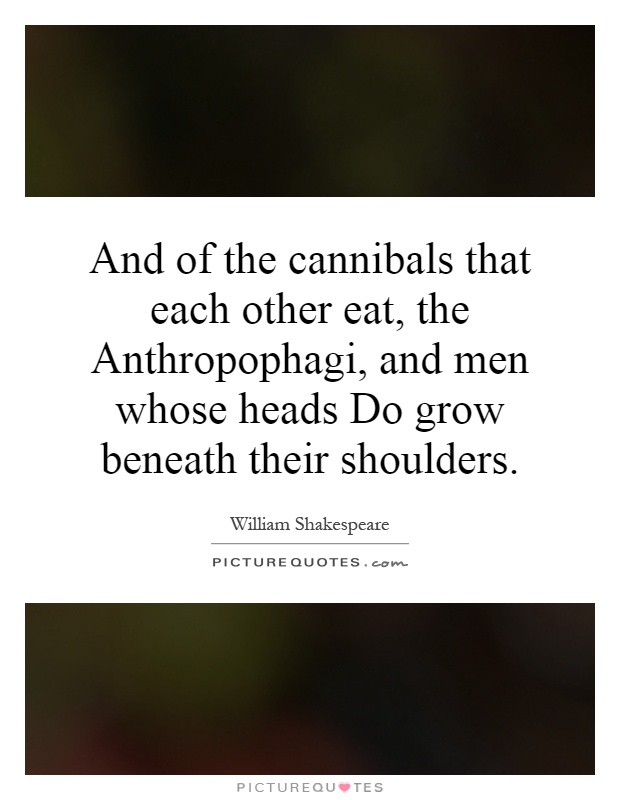And of the cannibals that each other eat, the Anthropophagi, and men whose heads Do grow beneath their shoulders

And of the cannibals that each other eat, the Anthropophagi, and men whose heads Do grow beneath their shoulders
In William Shakespeare's play "Othello," the character Othello refers to the Anthropophagi, a tribe of cannibals, in a speech where he describes the horrors of war and the brutality of mankind. The mention of the Anthropophagi serves to emphasize the theme of savagery and inhumanity that runs throughout the play.The line "And of the cannibals that each other eat, the Anthropophagi, and men whose heads Do grow beneath their shoulders" is spoken by Othello in Act 1, Scene 3, as he recounts his experiences in battle and the atrocities he has witnessed. The reference to the Anthropophagi, a mythical tribe of man-eaters, highlights the barbarity of war and the capacity for violence that exists within human nature.
The image of men with heads growing beneath their shoulders is a metaphor for the monstrous nature of mankind, suggesting that there are those who are so depraved and twisted that they are not even recognizable as human. This imagery serves to underscore the theme of appearance versus reality that is central to the play, as characters are often not what they seem and their true natures are revealed through their actions.
The mention of the Anthropophagi also serves to foreshadow the violence and betrayal that will unfold in the play, as Othello's jealousy and insecurity lead him to commit acts of cruelty and ultimately destroy himself and those he loves. The reference to cannibalism and monstrous men serves as a warning of the dangers of unchecked ambition and the destructive power of hatred and jealousy.
Overall, the mention of the Anthropophagi in "Othello" serves to underscore the themes of savagery, betrayal, and the dark side of human nature that are central to the play. Shakespeare uses this imagery to explore the depths of human depravity and the consequences of giving in to base instincts, making "Othello" a powerful and timeless exploration of the human condition.












 Friendship Quotes
Friendship Quotes Love Quotes
Love Quotes Life Quotes
Life Quotes Funny Quotes
Funny Quotes Motivational Quotes
Motivational Quotes Inspirational Quotes
Inspirational Quotes